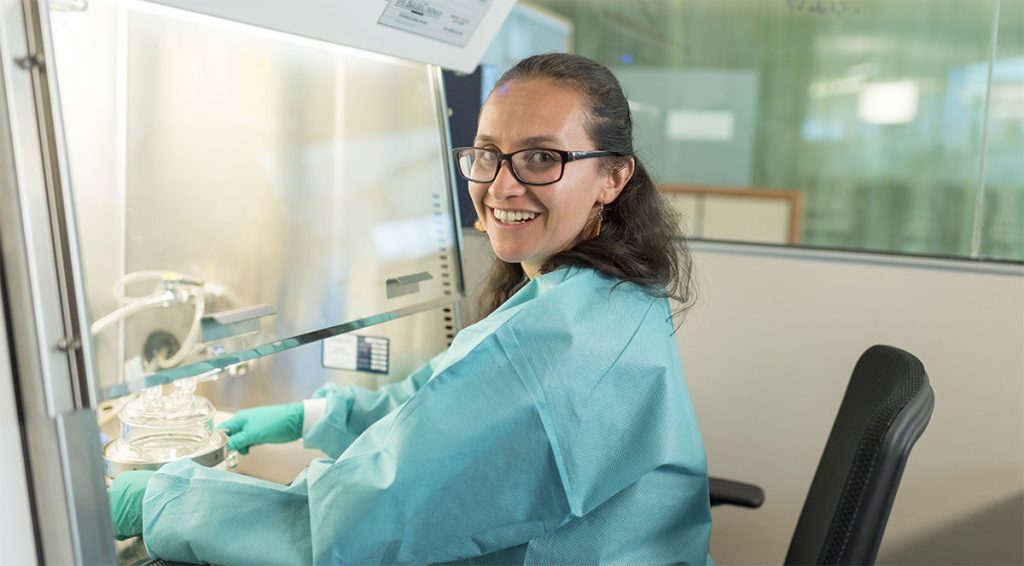13 Mar Rising Sparks: Marcela Tabima, regenerative biology

Marcela Tabima, regenerative biology
Channeling a fascination with human biology
The exquisite complexity of the human body drew Marcela Tabima to science as a child and it keeps her laser focused on her regenerative biology work at both the Morgridge Institute for Research and the Wisconsin Institute for Discovery.
“Human biology always attracted me. Even as a little child, it commanded my attention because I think that it’s perfect, how the systems all work together,” says Tabima, the daughter of two Colombian economists. “I cannot learn enough about it.”
Since late 2023, she has worked as a principal scientist for WID’s CRISPR Vision program, where they are pushing the frontiers of gene editing technology to treat inherited retinal disease.
Prior to that, she was an associate scientist in the Morgridge’s Regenerative Biology Group. At Morgridge, she was deeply involved with translational stem cell research – specifically developing functional, stem cell-derived arteries for use in vascular surgery.
The lab is led by Professor Igor Slukvin, who took over the last two years of a seven-year National Institutes of Health grant for the artery project when stem cell pioneer James Thomson retired.
Tabima worked in a lab that has develops scaffolds from synthetic materials that give form and shape to the artery. Then, researchers use a bioreactor that enables endothelial and smooth muscle cells to grow naturally around the structure for use as small-diameter vascular grafts.


